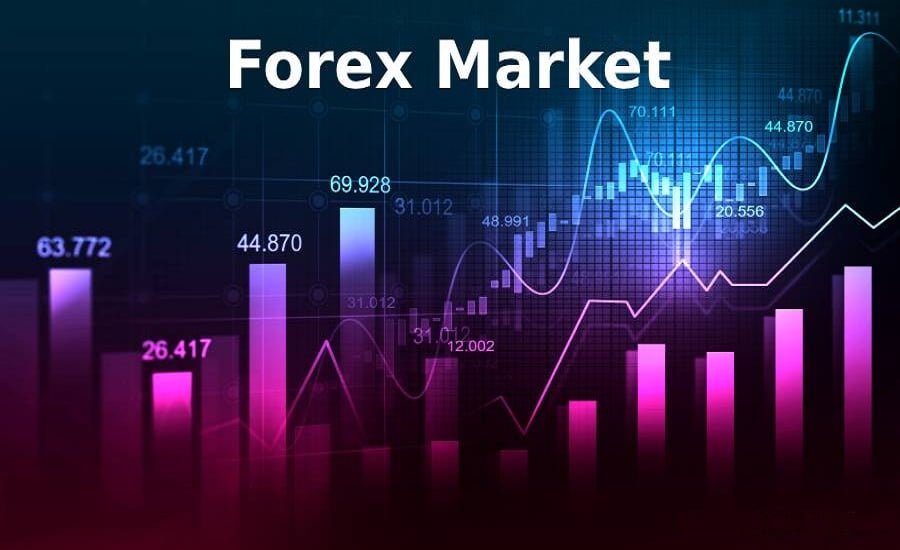Forex trading, or foreign exchange trading, is a dynamic and global financial market where currencies are bought and sold. Often referred to as forex or FX, this market is renowned for its liquidity, accessibility, and the potential for profit. In this article, we will delve into the basics of forex trading, exploring its fundamental concepts, key players, and the mechanisms that drive currency exchange on a global scale.
What is Forex Trading?
- Currency Pairs: At its core, forex trading involves the exchange of one currency for another. Currencies are quoted in pairs, with the first currency being the base and the second being the quote. The exchange rate indicates how much of the quote currency is needed to purchase one unit of the base currency.
- Market Structure: Unlike traditional stock markets, the forex market operates in a decentralized manner. There is no central exchange; instead, trading occurs over-the-counter (OTC) electronically. This structure allows for 24-hour trading, five days a week, as the market spans different time zones.
Key Concepts in Forex Trading
- Bid and Ask Prices: Traders encounter two prices when engaging in forex transactions—the bid price, representing the selling price, and the ask price, indicating the buying price. The difference between these prices is known as the spread.
- Pip: A pip, or percentage in point, is the smallest price move in the exchange rate of a currency pair. Most currencies are quoted to four decimal places, and a one-pip movement is typically the last decimal place.
- Leverage: Leverage is a tool that allows traders to control larger positions with a smaller amount of capital. While leverage can amplify potential profits, it also increases the risk of significant losses, making risk management crucial in forex trading.
Participants in the Forex Market
- Retail Traders: Individual traders, often referred to as retail traders, constitute a significant portion of the forex market. Advancements in technology have made it accessible for individuals to trade from the comfort of their homes using online platforms provided by brokers.
- Institutional Traders: Large financial institutions, including banks, hedge funds, and central banks, play a pivotal role in the forex market. Their substantial trading volumes can impact currency prices significantly.
Market Influencers
- Economic Indicators: Economic data, such as GDP growth, employment figures, and inflation rates, can have a profound impact on currency values. Traders closely monitor economic indicators to anticipate potential market movements.
- Interest Rates: Central banks’ decisions on interest rates influence currency values. Higher interest rates often attract foreign capital, leading to currency appreciation, while lower rates may lead to depreciation.
- Political and Geopolitical Factors: Political stability and geopolitical events, such as elections, trade tensions, and conflicts, can introduce volatility and uncertainty to the forex market.
Forex Trading Strategies
- Day Trading: Day traders open and close positions within the same trading day, taking advantage of short-term price movements. Technical analysis plays a crucial role in day trading strategies.
- Swing Trading: Swing traders aim to capture price swings or “swings” in the market over a period of several days to weeks. They often combine technical and fundamental analysis.
- Carry Trading: Carry traders aim to profit from interest rate differentials between currencies. They borrow in a low-interest-rate currency and invest in a higher-interest-rate currency.
Choosing a Forex Broker
- Regulation: It is essential to choose a reputable and regulated forex broker. Regulatory bodies, such as the Financial Conduct Authority (FCA) or the Australian Securities and Investments Commission (ASIC), provide oversight.
- Trading Platform: The trading platform is the interface through which traders interact with the market. Ensure the platform offered by the broker is user-friendly, reliable, and equipped with essential tools for analysis.
Conclusion
Forex trading, with its dynamic nature and potential for profit, offers a compelling arena for financial participation. Understanding the basics, including currency pairs, bid and ask prices, and market participants, is crucial for any trader embarking on a forex journey. Whether you’re a retail trader entering the market or an institutional player navigating substantial volumes, the principles of forex trading remain rooted in the fundamentals discussed in this article. As you explore the world of forex, continuous learning, disciplined strategies, and risk management will be your key allies in this exciting financial landscape.








